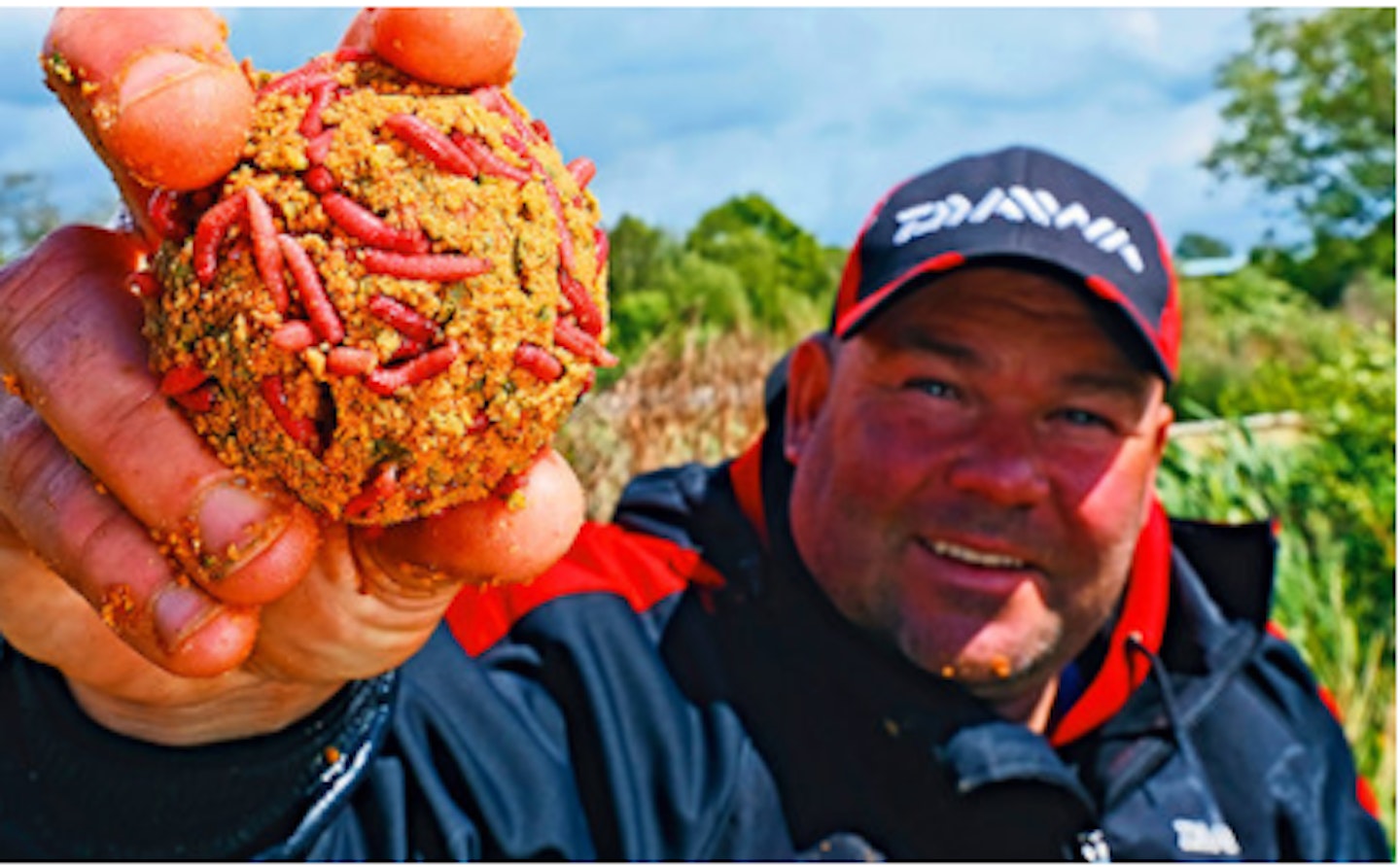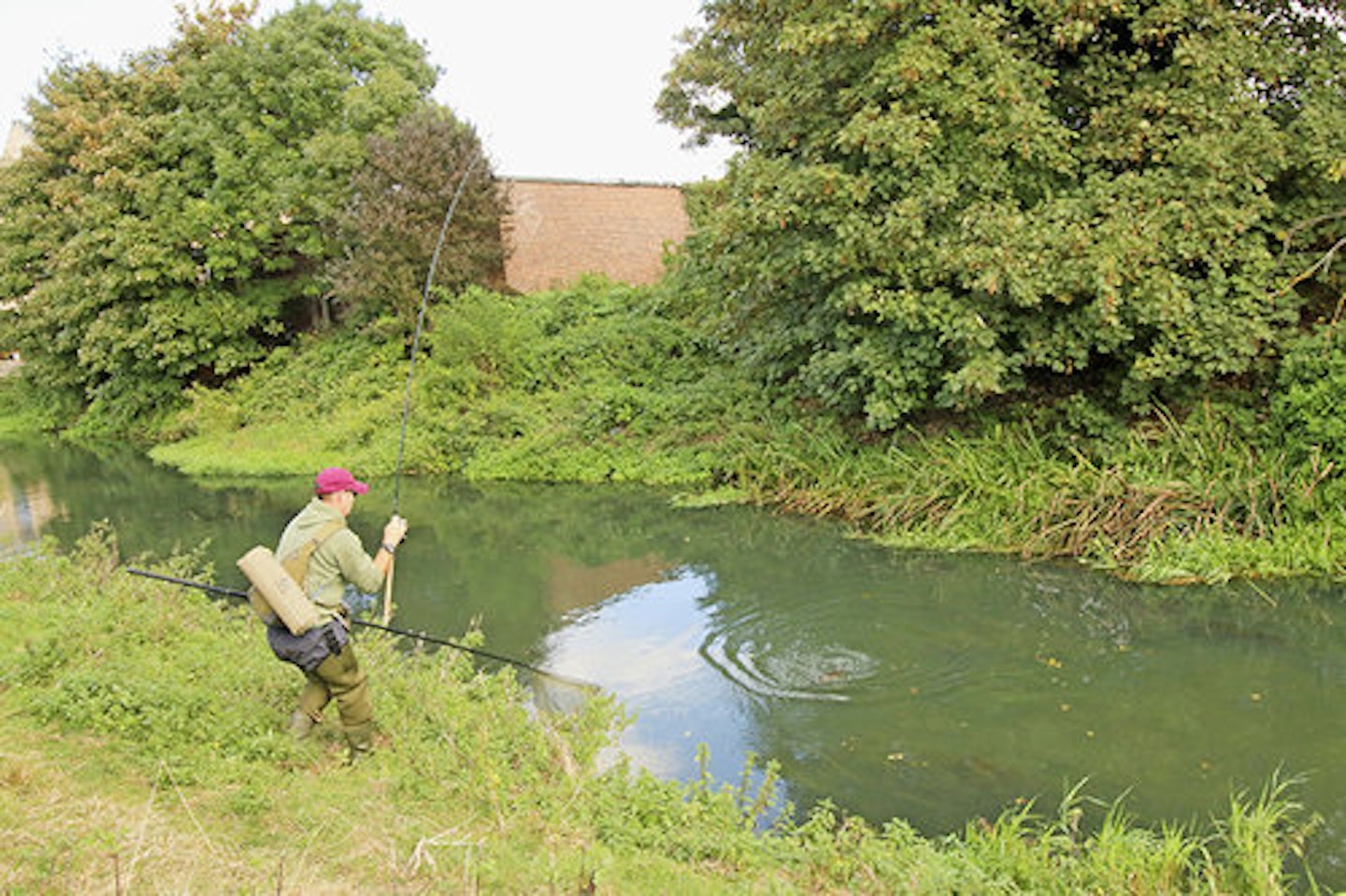Do you want more bites from your local river? Then you may want to give this, list of the 40 best river fishing tips a read. As it will most likely increase your chances of catching next time you are out on the bank, fishing your local river or stream. These 40 fishing tips for the rivers are guaranteed to help you outwit your target species and hopefully land yourself a new PB.
1
Barbel have a reputation for giving savage bites but that isn’t how every indication will pan out. On heavily pressured waters the fish are more cautious when feeding and the slightest knock on the rod tip could indicate a big fish has tentatively picked up the hookbait.
2
Locating features is crucial when tracking down river carp. Everything from bridges to overhanging bushes are worth a look because these can trap food and form natural larders.
3
Prebaiting is key when targeting carp on running water. They can travel large distances in a short time so introduce bait on a regular basis in the run up to your session.
4

Where the fish feed in the column dictates how you feed for roach. If fish are up in the water catapult maggots and casters. If they are on the deck, feed these baits inside balls of groundbait to get them to the bottom.
5
If breambites suddenly stop the shoal may have backed off the main feed. Chuck a couple of feet further to relocate fish.
6
Keep the bait still when bream fishing. When pole fishing on a pacey river, this can mean fishing as much as a foot overdepth.
7
Use a bulk of shot and droppers to fish maggot or pinkie over groundbait for roach, switching to a strung out pattern with hemp.
8
.jpeg?auto=format&w=1440&q=80)
Fenland drains are home to giant rudd in a handful of swims. Walk the banks of your local stretch wearing polarised sunglasses as they will often give themselves away by feeding on insects.
9
.jpeg?auto=format&w=1440&q=80)
Take several pints of maggots when chub fishing. Constant feeding is vital – even if you are not getting bites. The rain of bait falling through the water will eventually tease chub into feeding.
10
.jpeg?auto=format&w=1440&q=80)
Float fished livebaits are deadly for big perch. Constantly feed maggots over the top to draw in even more bait fish and a potential personal best won’t be far away.
11
Weather will play a huge part in whether you will have success with river bream. Warm and overcast is ideal but avoid bright sunshine and little cloud cover.
12
Groundbait is rarely used for predators but a few balls of fishmeal groundbait laced with chopped up pieces of fish can give you an edge when sport is slow.
13
.jpeg?auto=format&w=1440&q=80)
Alloy stick floats are buoyant and best in turbulent water, glass is lightweight and will give a really slow fall of the hookbait and a shouldered lignum is easily lifted to move hookbait.
14
.jpeg?auto=format&w=1440&q=80)
Chub feed in pretty much any conditions but in coloured water you will need a smelly bait to draw the fish in. Halibut pellets and paste work well but cheesepaste is the ultimate bait.
15
.jpeg?auto=format&w=1440&q=80)
Rivers will run clear after long periods without rain and this is when bread starts to work well. Fill a feeder with liquidised bread and hook a large flake for chub and quality roach.
16
.jpeg?auto=format&w=1440&q=80)
Big chub will always seek cover but the best features are not always the ones that you can see at first glance. Undercut banks are magnets for these finicky specimens. While taking great care, lay on the bank at a likely spot and place your hand into the water and feel whether the bank is undercut.
17
.jpeg?auto=format&w=1440&q=80)
Roach bites can be hard to hit but keeping a tight line between pole tip and float willimprove your conversion rate. Add a No.8 backshot between tip and float to guarantee a tight line.
18
If you get a run of bites on a feeder but the action suddenly stops it can pay to have a few chucks on a bomb rig. Making the simple switch could encourage them to feed confidently.
19
If you are on a huge shoal of silverfish it is important to concentrate them in one zone. Fish one swim or you will split the shoal and that will lead to fewer bites and a smaller stamp of fish.
20
.jpeg?auto=format&w=1440&q=80)
A wobbled deadbait can fool pike but it is important how you retrieve it. Reel it in slowly, jerking the rod from time to time, and this will imitate injured fish that the pike often feast upon.
21
.jpeg?auto=format&w=1440&q=80)
Worms, maggots and casters are often the first port of call for bream but these can lead to a plague of small roach and perch. Use 14mm or 16mm boilies to deter the tiddlers.
22
.jpeg?auto=format&w=1440&q=80)
The area between fast and slow water is the crease. Trot a stick float feeding maggots.
23
.jpeg?auto=format&w=1440&q=80)
Chub on some days may want tiny baits. swap paste or pellets for one or two maggots.
24
.jpeg?auto=format&w=1440&q=80)
For bigger roach and chub use a loaded waggler with no shot for a slow hookbait fall.
25
Big barbel can be finicky and the slightest mistake could send a potential pb packing. To prevent them detecting a rig, pin the mainline to the deck by using back leads.
26
River carp aren’t heavily pressured so use simple set-ups and strong hooklinks.
27
Lures are deadly for perch. A shallow-diving pattern with neutral buoyancy is best now.
28
Feed via a catapult for roach and drop the odd pouch short. If you miss a bite, run float over it.
29
.jpeg?auto=format&w=1440&q=80)
Groundbait is a real winner for bream but the type of mix you use needs careful consideration. Make sure that it is high in fishmeal and always mix it so that it is fairly heavy and sticky. This will make sure it doesn’t get washed out the swim by the current.
30
Use a 14ft rod for the stick so you can keep in touch with float and work the swim.
31
A tiny hook isn’t critical for big roach. The most important thing is that the point is showing.
32
Log pike sessions, noting weather, wind direction and time of catches, to see trends.
33

Heavily pressured swims very rarely hold quality chub so it is best to head off the beaten track to find a new personal best. Walking to spots that are well away from car parks and access areas is often the best way to find these elusive lumps.
34
River barbel stocks are growing but aim for well oxygenated fast water such as weir pools.
35
When looking for big perch locating a shoal of fry should be a priority. Predators will be close.
36
Look for areas of river where the water widens a little when fishing for bream. The species tend to sit in deep and wider areas of water, well away from any weed or cover.
37
Enhance luncheon meat with a pungent flavour such as chilli powder or garlic salt for barbel.
38
.jpeg?auto=format&w=1440&q=80)
Quick after-work sessions are often ideal for chub as this is the time of day when they feed most confidently. The water will have been exposed to sunlight all day so it will be at its warmest, triggering the fish to search for food to maintain their energy levels.
39
The hooklink can be the difference between success and failure. Start with a 3ft link and vary it. If you are getting lots of taps but no proper bites, reduce it by a foot as fish are feeding closer to the feeder. If there are no bites, lengthen it as fish could be sat just off your zone.
40
Prebaiting will get fish into a swim. Small pellets, hemp and casters keep them there.
.jpeg?ar=16%3A9&fit=crop&crop=top&auto=format&w=1440&q=80)